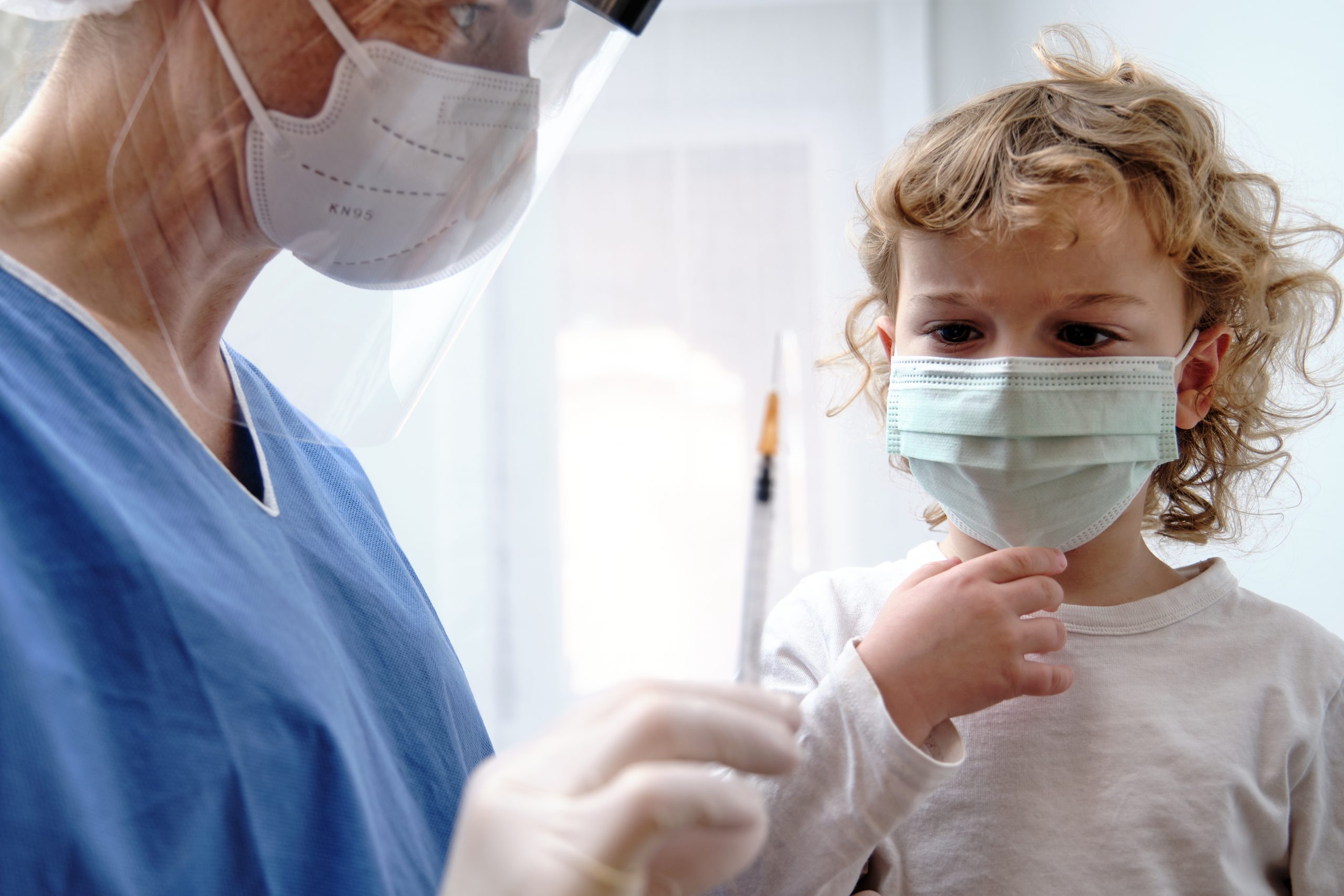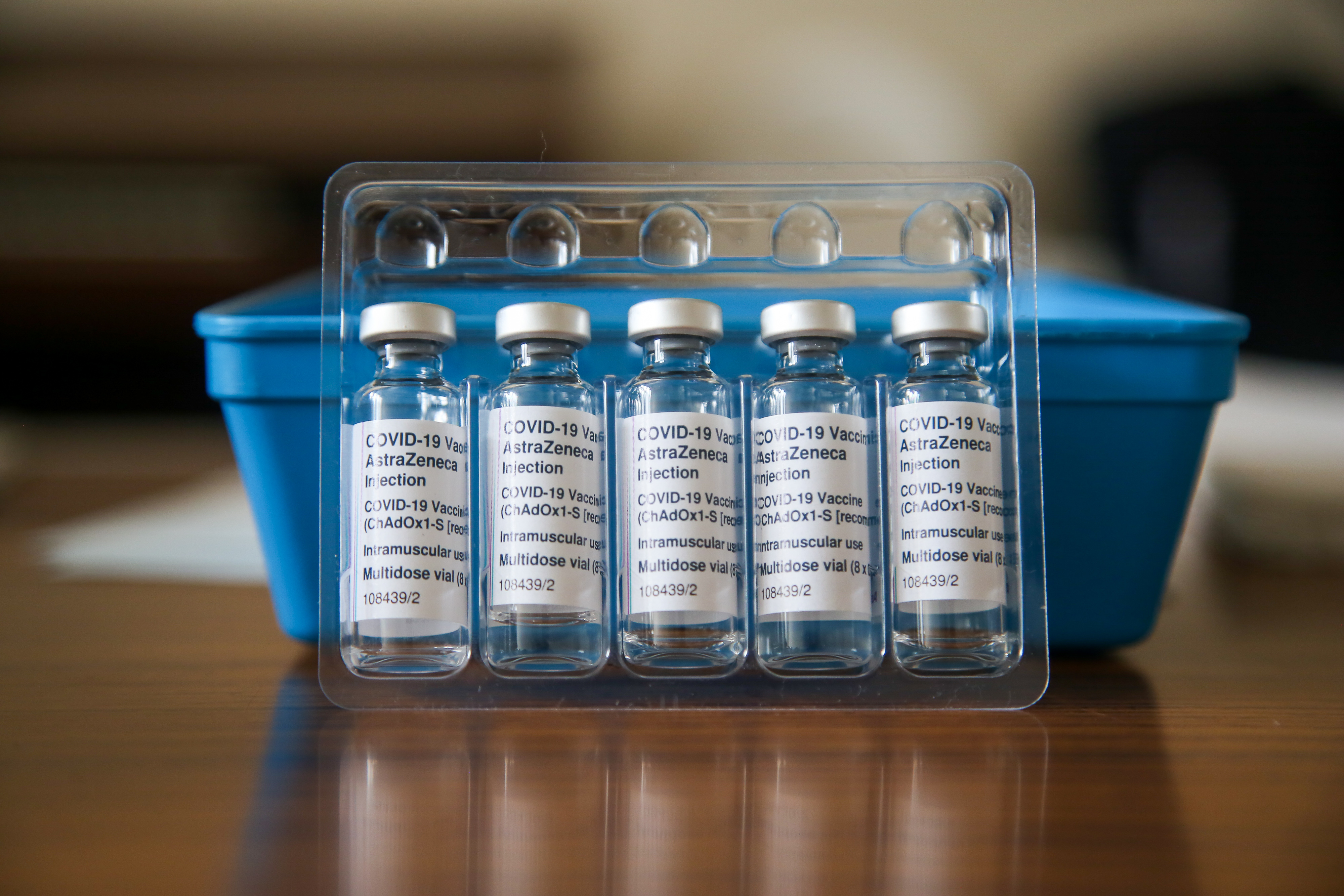Should all children get the Covid vaccine?


Parenting advice, hot topics, best buys and family finance tips delivered straight to your inbox.
You are now subscribed
Your newsletter sign-up was successful
Should all children get the Covid vaccine? It's a question everyone from parents to medical experts have been asking.
Just this week, the Medicines and Healthcare products Regulatory Agency (MHRA) approved the Pfizer vaccine for vulnerable children aged between 12-15 years old. Following this, Health Secretary Sajid Javid has asked the NHS to start vaccinating eligible children "as soon as possible".
For some, it's a huge relief. Allowing younger children with underlying health conditions access to the vaccine ensures them more protection from the virus. Others, however, wonder if this will lead to all children being vaccinated in the not-too-distant future.
Should all children get the Covid vaccine?
Vaccinating children is essential to reach herd immunity and limit the severe repercussions of Covid-19 on the wider population, research suggests. This is our sure-fire way out of the pandemic for good, as herd immunity has predominantly been achieved through vaccines for hundreds of years now.
However, safety and necessity should always be paramount when considering new vaccines - especially for children.
These are just two of the main arguments for why we should and shouldn't vaccinate children. This is what else the experts are saying...
The risk of Covid-19 to most children is very low
This is true, all evidence suggests. While children are certainly still vulnerable to the virus, they're significantly less likely to become ill while infected with it.
Parenting advice, hot topics, best buys and family finance tips delivered straight to your inbox.
Most children who contract Covid-19 only get a mild illness, research shows. All children, including those with minor underlying health conditions, also have a significantly lower risk of hospitalisation and death too.
They're less likely than adults to develop long-term conditions as a result of the virus, such as multisystem inflammatory syndrome, as well.

Infections in children are almost always only mild or even asymptomatic, evidence suggests. This is a dramatic contrast to older age groups who tend to experience worse symptoms while unwell and are proven to be more at risk.
One international study, published in the Lancet, shows that an estimated fewer than two out of every million children died directly from Covid-19 during the pandemic last year. While even one child is too many, this shows that the virus rarely if ever seriously affects children.
And medical experts have agreed that those children who are extremely vulnerable should have the vaccine. As of July 20, the NHS is offering all eligible children their first dose of the vaccine "as soon as possible" to prevent any further risk from the new Delta variant.
On announcing the new stage of the rollout, Vaccines Minister Nadim Zahawi said, "In accepting the JCVI advice, more vulnerable young children and those who live with people who are immunosuppressed will be offered the vaccine. Vaccines save lives, and it is vital all those who are eligible book their 1st and 2nd doses without delay".
But children are still susceptible to long Covid
Even children who were asymptomatic during infection have been shown to develop long Covid afterwards.
The condition was first identified in adults but studies have now discovered that it's very much something that's impacting the daily lives of children too. Symptoms include headaches, fatigue, insomnia, muscle pain, flu-like symptoms and heart palpitations.

One Italian study interviewed 129 children (aged between 6 and 16 years old) who had tested positive for Covid-19 between March and November 2020. They discovered that more than one out of three children had one or multiple symptoms of the virus four months or more after infection - a pattern now officially described as long Covid. Out of the 129 children surveyed, just over 40% completely recovered.
The research by Paediatrician Danilo Buonsenso at the Gemelli University Hospital in Rome also confirmed previous findings. Even children who only had mild symptoms or were completely asymptomatic had the long-term effects of the virus.
Findings from the ongoing Zoe symptom study have confirmed that vaccines "reduce the chances of people getting long Covid". This is because the jab reduces "the risk of seriously debilitating symptoms". And, importantly, also decreases the chances of an infection lasting longer than three months.
Vaccinating children could save other lives
Experts have always said that older people and those who have underlying health conditions are most at risk from Covid-19. Vaccinating children is a good step to help reduce the risk for others.
The vaccines are proven to be excellent at disrupting the spread of the virus, as the rise in cases recently tells us.
Other research shows that just one dose of the vaccine cuts the chances of catching the virus by half at least. And even the people who do get Covid are half as likely to pass it onto others.
Younger children, surprisingly, aren't actually major risks for the spread of coronavirus. But it's certain that older unvaccinated teenagers are a serious risk to those vulnerable to the virus.
But other countries need the vaccines more
The United Kingdom has fully vaccinated over half of their population. 82.4 million people have received at least one dose, which cuts their risk of severe illness and hospitalisation by as much as 75% in some cases. Following the success of the rollout, the government are considering boosting immunity with a third jab this year.

In comparison, according to the People's Vaccine Alliance, at least 90% of people in 67 low income countries are unlikely to have a vaccine against Covid-19 this year. All because richer nations, including the UK, have reserved more vaccine doses than they need.
Wealthier countries only contain 14% of the world's population. But they have purchased 53% of the eight "most promising" vaccines, according to the Alliance. This includes all of the Moderna doses for the next year and 96% of the Pfizer vaccine jabs.
While Oxford University has promised to offer 64% of their vaccine to developing countries, the Alliance has predicted that at best this will reach only 18% of the world's population within the next year.
This has caused huge contention in the medical community. Some experts insist that all extra vaccine supplies should go to nations who haven't been able to vaccinate their populations.
The World Health Organisation (WHO) confirmed recently that rich countries should delay any plans to vaccinate children. Instead, they should donate the doses to the rest of the world.
Professor Andrew Pollard conducted the clinical trials of the Oxford vaccine. He said that it was "morally wrong" to prioritise children in the UK over other nations. While immunologist Professor Eleanor Riley did say that there "is a case for it" - but it comes with a condition.
"If there was unlimited supply of vaccine we could keep going with the over-12s, but there isn't," she said. "Eventually it's a political decision whether to prioritise our kids over adults dying in their droves elsewhere in the world."
There are also economic benefits to offering the vaccine more widely than our own shores. Professor Philip Clarke, a lead researcher of population health from the University of Oxford, said as much.
"Redistributing vaccine supplies from high-income countries would have global benefits. It would reduce the risk of the emergence and spread of new variants and benefit the economy, both globally and in donor countries," he said.
"In contrast, the economic cost of vaccine nationalism is potentially high. The world’s economy is highly interconnected. As long as the virus is not under control everywhere, there will be a huge cost to the global economy. Up to $1.2 trillion per year according to some estimates."

Grace Walsh is a health and wellbeing writer, working across the subjects of family, relationships, and LGBT topics, as well as sleep and mental health. A digital journalist with over six years experience as a writer and editor for UK publications, Grace is currently Health Editor for womanandhome.com and has also worked with Cosmopolitan, Red, The i Paper, GoodtoKnow, and more. After graduating from the University of Warwick, she started her career writing about the complexities of sex and relationships, before combining personal hobbies with professional and writing about fitness.